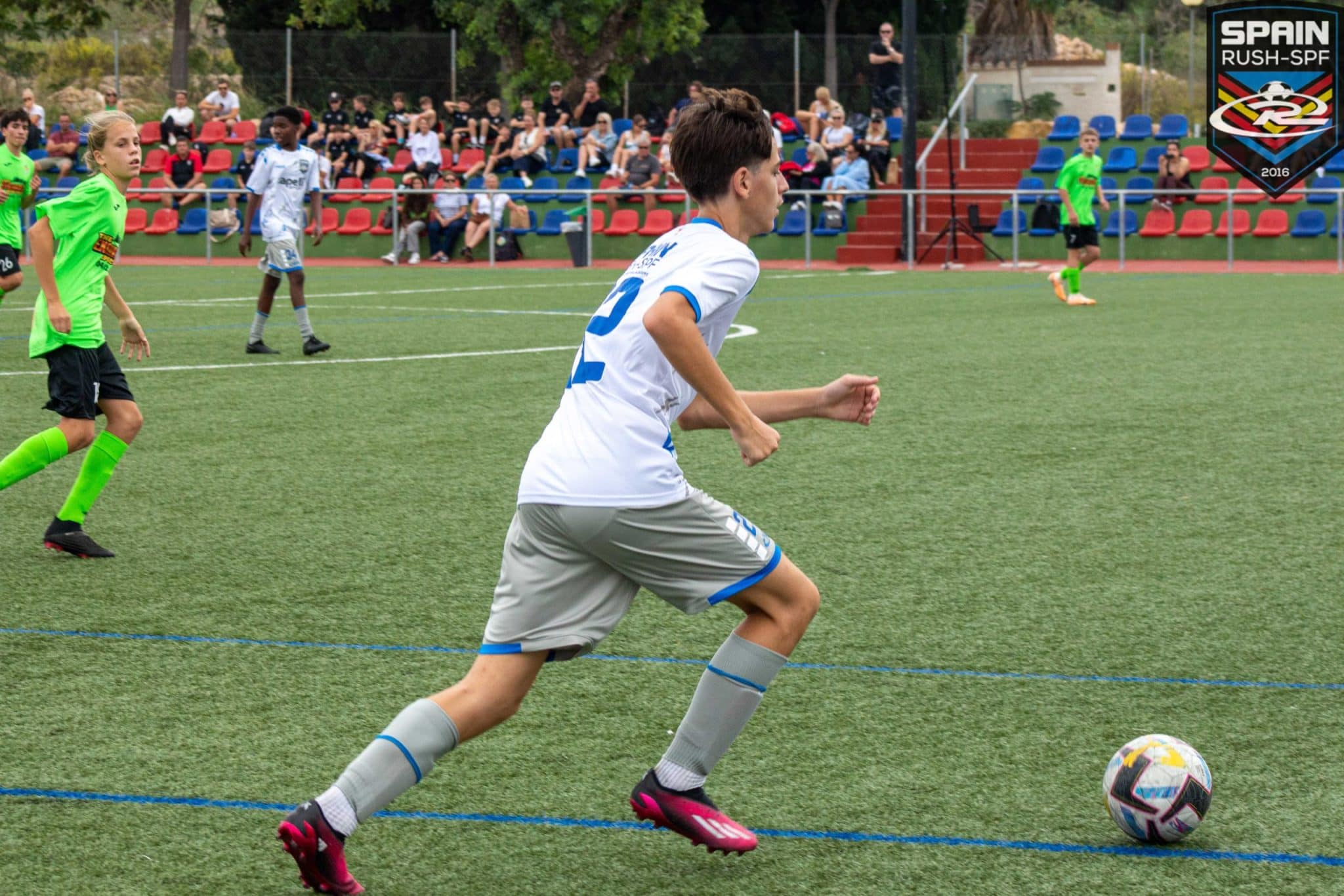Good nutrition fuels a sportsman, be it football or any other sport. But nutrition becomes a very important factor in football, which requires you to be on foot constantly and keep your mind engaged in strategies.
As a game, football demands physical strength, stamina, and performance to hit a goal against all odds. Nutrition is crucial for young football enthusiasts to support their bodies and play football for longer.
Proper nutrition fuels the body and helps it recover quicker and stronger. This ensures that young football players remain at their prime, whether on or off the pitch.
Let’s get started!
Nutrition Tips for Young Football Players
1. Proper Hydration
Hydration plays a crucial role when it comes to sports.
Especially for athletes like football players who engage in high-intensity activities, water is not just a drink; it’s a lifeline.
Proper hydration ensures muscles function optimally. Hydration also reduces the risk of cramps and fatigue. It helps regulate body temperature, vital for athletes who train or compete in different weathers.
Moreover, adequate water intake supports cognitive function and enhances reaction time, which is essential in football.
For young football players, creating a proper water routine is important.
Consider drinking water before, during, and after training or a match. Ensure not to gulp the water; instead, take sips more frequently.
While water is the primary go-to, especially during shorter activities, you can consider incorporating sports drinks to restore the lost electrolytes quickly in longer sessions.
There are many hydration jokes in this football jokes for kids article; give it a read to laugh your heart out.
2. Carbohydrates: The Energy Source
We all learned in school that carbohydrates are the powerhouse of energy. This is especially true for athletes, especially football players.
When you sprint down the field and hit a goal, its the job of carbohydrates to give you the optimum fuel.
These macronutrients are abundant in whole grains, fruits, and vegetables. When in need, carbohydrates break down into glucose, providing immediate muscle energy.
For young football enthusiasts, the type and timing of carbohydrate intake matters and can influence performance significantly.
For instance, consuming complex carbohydrates ensures a prolonged release of energy. It prevents early fatigue during matches or training sessions.
Foods like brown rice, quinoa, and whole-grain bread offer energy, essential nutrients, and fiber that are beneficial for digestion.
However, not all carbohydrates are created equal. While consuming sufficient carbs is essential, choosing nutrient-dense sources over sugary snacks or refined products is crucial.
3. Protein: Building Blocks of Recovery
Protein is essential to nutrition, ensuring the muscles are adequately repaired and stronger.
Proteins are aptly called building blocks, as protein plays a key role in muscle repair, growth, and recovery.
For young football players, whose muscles undergo considerable stress during training sessions and matches, a consistent protein intake is crucial to avoid exertion.
Post-exercise, the body enters a state where the broken muscle proteins during the game get repaired. Therefore, consuming a good quantity and protein quality post-training or post-match enhances muscle recovery.
The exact protein requirements vary based on age, weight, and training intensity. However, you can follow a general guideline to incorporate lean sources such as chicken, turkey, fish, eggs, legumes, and dairy into your diet.
4. Fats: Quality Over Quantity
Most people regard fats as bad and go to extreme lengths to avoid them in their meals.
However, its crucial to know that fats are also highly needed by the human body. For instance, fats are responsible for hormone production, nutrient absorption, etc.
When discussing fats, we should discuss quality over quantity since not all fats are created equal.
Saturated fats can raise cholesterol levels and increase the risk of heart disease when consumed excessively. It is present in red meat, dairy products, etc.
On the other hand, unsaturated fats, including monounsaturated and polyunsaturated fats, give you health benefits. You can have them from avocados, nuts, seeds, and olive oil in your meal.
5. Importance of Vitamins and Minerals
Micronutrients often take a backseat when it comes to sports nutrition. Most athletes revolve their whole diet around carbohydrates, fats, and protein.
However, their significance in ensuring young football players’ optimal health and performance cannot be overstated.
For instance, vitamins help in various physiological processes, i.e., immune function and cell repair. Conversely, minerals are vital for muscle contraction, bone health, and fluid balance within the body.
But you need not worry; start having a balanced diet rich in fruits, vegetables, lean proteins, and whole grains.
6. Pre-Game and Post-Game Nutrition
Your nutrition before the game starts can make or break the game.
In this period, you should focus on consuming easily digestible carbohydrates to ensure energy stores are topped up without much effort. You can consider eating oatmeal, whole-grain pasta, or a banana for this.
Your body would like to recover from all the stress in the post-game period. A combination of carbohydrates and protein is the best for faster and optimum recovery.
Chocolate milk, with its ideal carb-to-protein ratio, is a favorite among many athletes.
In essence, pre-game nutrition helps the upcoming match, while post-game nutrition kickstarts the recovery process, ensuring you perform the best in the upcoming matches.
Conclusion
All in all, nutrition plays a key role in how you play football. A sportsperson with optimum nutrition is most likely to outshine the one who is malnourished in some way.
We understand that skills matter in a football game, but if you don’t have the energy to make the trick happen, then it just remains a fantasy.
That is why, by prioritizing hydration, consuming a balanced diet rich in carbohydrates, proteins, healthy fats, vitamins, and minerals, and paying attention to pre-game and post-game nutrition, young football enthusiasts can set themselves up for success in no time!
Remember, it’s not just about a single game; it’s about nourishing the body and setting the young player for a thriving football career.










